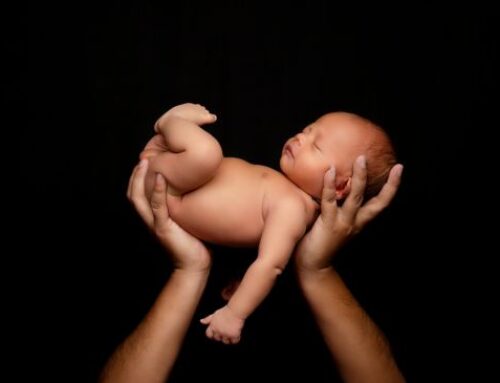“When our three girls were adolescents, we moved to a small farm with no cable TV, gave them each a pig to raise, taught them to run a tractor and began an organic market garden.”
Thus began a fascinating interview with popular Interim writer Doreen Beagan.
Doreen hails from Prince Edward Island, where she was the oldest of nine children born to a blacksmith and a homemaker. She looks back fondly upon her childhood: “We children were so busy working and having fun together that we didn’t realize our family was poor.”
Faith, family and education would always play an important part in Doreen’s life. Her husband Tom, who also grew up in Canada’s smallest province, was her university prom date. The couple raised three daughters together before Tom passed away in 2000.
Doreen spent 25 years as a teacher. She taught a variety of subjects to students in six provinces, and her students ranged in age from five to 85. One of her most memorable teaching experiences was the two years she and her husband spent in a native community. “I taught slow learners, fast learners, regular learners and was part of a national committee setting university admission exams in English,” Doreen explains.
As one-half of a strong and happy marriage, Doreen did not venture into the right-to-life movement alone. “Tom and I had good faith formation at the community and university level, including teaching on things like abortion and euthanasia, long before they became current issues, and we regarded the family as the cornerstone of civilization – so getting involved was a natural.”
Tom got involved in pro-life activism through the Knights of Columbus, while Doreen became active through REAL Women of Canada. “We never had to go looking for causes,” Doreen explains. “They found us. And they tended to grow out of each other and overlap. Often, we were a team in the same activity.”
Tom and Doreen’s right-to-life activities did not end with abortion. For over 20 years, they helped younger couples prepare for marriage. They also volunteered with various faith and community-based marriage enrichment programs. They became natural family planning teachers in 1982 and served on the board of WOOMB Canada for a number of years. Doreen is currently on WOOMB’s national board, serving as its vice-president.
“As NFP teachers, we became aware of the various international attacks on the family and began fighting the introduction of school sex-ed programs,” Doreen shares. “This was in the 80s!”
Doreen is not shy about her Catholic faith being the source of her pro-life efforts: “Here is an observation about volunteering, especially in the fields of social and political actions: it can destroy or enrich you. Evil is real; spiritual attack is real. It’s important to pray for guidance and also for protection. It’s good to have a spiritual director.”
Doreen is usually quick and to-the-point. When asked why abortions are no longer committed in the province of her birth, she answers: “We won.”
When prodded to explain how P.E.I. pro-lifers won the abortion debate, Doreen becomes more loquacious. Hers is a tale of ordinary pro-lifers coming together and working hard to make an extraordinary difference. “One night in 1981, despite one of the province’s worst-ever downpours, a standing-room-only crowd gathered in a Charlottetown hockey arena and, after five to six years of attempts, succeeded in voting down any possibility of our new amalgamated hospital providing abortions. I can still feel the electricity in the air as the votes were counted. It was such a thrill to be part of that victory.”
She continues: “To close down abortions in the other major hospital took five more years of very hard work, during which I was elected to its board of trustees … We ended its abortion role in 1986.”
Doreen recalls that at first, she was deeply resented by the old board members. But, she explains, “I worked very diligently, won their respect despite being pro-life, headed committees and eventually served two terms as the board’s vice chair. Pretty good going for a pro-lifer!”
The highlight
Asked about the highlight of her pro-life activism, Doreen recalls, “On the provincial level, the biggest excitement was in 1988, when our legislature unanimously passed an all-party resolution opposing the provision of abortion in P.E.I. unless a woman’s life was in danger. It’s not a perfect solution; some off-Island in-hospital abortions still do occur and are paid for.”
Doreen notes that being a right-to-life activist in the Maritimes has both advantages and disadvantages. “In this part of Canada, with close-knit communities and strong family ties, there is less indifference to life-and-family issues than in larger places. But the same features also make it harder to take possibly unpopular stands on issues.”
She worries that there is less “intensity” in the Maritime pro-life movement as there was some years ago, because there are so many challenges: “It’s easier to focus strongly on one very clear issue, but today the attacks are coming in so many different forms that people’s energies are diffused.”
But there is still reason for hope. “Throughout Atlantic Canada there are still many strong well-informed, seasoned warriors and many wonderful families heroically doing all they can to plug the holes in the dikes. Perhaps they could again mount a great groundswell.”
She says that Maritimers should work more effectively together: “I have always thought we really need to work more closely as a region, to co-ordinate and synchronize our activities for greater strength and effectiveness.”
On a closing note, Doreen is encouraged by the number of young people rallying behind the right-to-life standard in Canada’s culture war. “Yahweh provides,” she states. “The needed persons will always be raised up to combat the evils of each age. These young people are coming along just in time to learn from us aging and often tiring veterans, and bring new energies and insights to the struggle.
The tracks for their work were laid by pro-life leaders such as Doreen Beagan.




